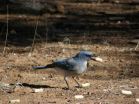Complex signaling between blood and stem cells controls regeneration in fly gut
Buck Institute scientists say impaired interactions between macrophages and stem cells are likely players in human intestinal maladies like IBS, leaky gut and colorectal cancers
2015-05-25
(Press-News.org) Having a healthy gut may well depend on maintaining a complex signaling dance between immune cells and the stem cells that line the intestine. Scientists at the Buck Institute are now reporting significant new insight into how these complex interactions control intestinal regeneration after a bacterial infection. It's a dance that ensures repair after a challenge, but that also goes awry in aging fruit flies -- the work thus offers important new clues into the potential causes of age-related human maladies, such as irritable bowel syndrome, leaky gut and colorectal cancer.
"We've dissected a very complex signaling interaction," said senior scientist and Buck faculty Heinrich Jasper, PhD. "By doing so temporally we've clearly established a role for the immune system both in initiating the regenerative process and in shutting it down - activities that are essential for maintaining tissue homeostasis."
Publishing in the May 25, advance online edition of Nature Cell Biology, researchers in the Jasper lab show that the macrophage-like hemocytes (which comprise the cellular immune system in flies) go to the intestines of Drosophila following damage. The hemocytes secrete the growth factor Dpp (a homologue of BMP, which has many functions, including the control of mobility, differentiation and invasiveness of normal cells), setting off the regenerative process by activating specific receptors in stem cells. In a fascinating twist, stem cells switch their response to Dpp in the middle of the regenerative response by turning on other Dpp-related receptors, which in turn instruct the stem cells to go back to a quiescent or quiet state. Jasper says it's a balancing act that both allows for healing and prevents excessive cell proliferation, which could lead to pre-cancerous dysplasia. "The temporal sequence of cell interactions during injury-induced regeneration is only beginning to be understood," said Jasper. "The proper timing of these interactions may be key in maintaining a healthy gut."
Jasper says aging makes it harder for the stem cells to switch gears between proliferation and quiescence and that flies suffer from age-related intestinal dysfunctions similar to those experienced by humans. Jasper says when the flies are young they are able to fend off infection and repair tissues, but that the cumulative effect of damage over a lifetime takes a toll - signaling goes awry, and stem cells get chronically activated, causing inflammation and dysplasia, which makes the animal more prone to infection and dysfunction. "This is another classic example of 'what is good for us in youth, turns against us with age'," said Jasper. "When we think of interventions, we need to find the sweet spot. We want to promote stem cell repair and regeneration without having those responses become chronically activated."
"In this case we have established a role for macrophage - like cells in influencing tissue homeostasis both during infection and during the aging process," said Jasper. "Macrophages are clearly a target for a number of age-related disease - we need to understand their function better. This is an essential step in that process."
INFORMATION:
Citation: Nature Cell Biology; Hemocytes control stem cell activity in the Drosophila intestine
Other Buck Institute researchers involved in the study include Arshad Ayyaz, and Hongjie Li. The work was funded by the National Institute on General Medical Sciences (RO1 GM100196) and the National Eye Institute (R01 EY01877).
About the Buck Institute for Research on Aging
The Buck Institute is the U.S.'s first independent research organization devoted to Geroscience - focused on the connection between normal aging and chronic disease. Based in Novato, CA, The Buck is dedicated to extending "Healthspan", the healthy years of human life and does so utilizing a unique interdisciplinary approach involving laboratories studying the mechanisms of aging and those focused on specific diseases. Buck scientists strive to discover new ways of detecting, preventing and treating age-related diseases such as Alzheimer's and Parkinson's, cancer, cardiovascular disease, macular degeneration, osteoporosis, diabetes and stroke. In their collaborative research, they are supported by the most recent developments in genomics, proteomics, bioinformatics and stem cell technologies. For more information: http://www.thebuck.org
ELSE PRESS RELEASES FROM THIS DATE:
2015-05-25
May 26, 2015, Shenzhen, China - Researchers from BGI reported the most complete haploid-resolved diploid genome (HDG) sequence based on de novo assembly with NGS technology and the pipeline developed lays the foundation for de novo assembly of genomes with high levels of heterozygosity. The latest study was published online today in Nature Biotechnology.
The human genome is diploid, and knowledge of the variants on each chromosome is important for the interpretation of genomic information. In this study, researchers presented the assembly of a haplotype-resolved diploid ...
2015-05-25
A gene essential to the production of pain-sensing neurons in humans has been identified by an international team of researchers co-led by the University of Cambridge. The discovery, reported today in the journal Nature Genetics, could have implications for the development of new methods of pain relief.
Pain perception is an evolutionarily-conserved warning mechanism that alerts us to dangers in the environment and to potential tissue damage. However, rare individuals - around one in a million people in the UK - are born unable to feel pain. These people accumulate numerous ...
2015-05-25
Scientists at the University of York's Centre for Quantum Technology have made an important step in establishing scalable and secure high rate quantum networks.
Working with colleagues at the Technical University of Denmark (DTU), Massachusetts Institute of Technology (MIT), and the University of Toronto, they have developed a protocol to achieve key-rates at metropolitan distances at three orders-of-magnitude higher than previously.
Standard protocols of Quantum Key Distribution (QKD) exploit random sequences of quantum bits (qubits) to distribute secret keys in a completely ...
2015-05-25
TORONTO, May 25, 2015 - A new, Ontario-wide study shows that rates of hospital readmission following a traumatic brain injury (TBI) are greater than other chronic diseases and injuries and are higher than previously reported.
The study, led by Dr. Angela Colantonio, senior scientist, Toronto Rehabilitation Institute, UHN, examined nearly 30,000 TBI patients discharged from Ontario hospitals over the span of eight years. Published in the May edition of Archives of Physical Medicine and Rehabilitation, the study found that about 36 per cent of patients with TBI had been ...
2015-05-25
Madagascar is home to extraordinary biodiversity, but in the past few decades, the island's forests and associated biodiversity have been under greater attack than ever. Rapid deforestation is affecting the biotopes of hundreds of species, including the panther chameleon, a species with spectacular intra-specific colour variation. A new study by Michel Milinkovitch, professor of genetics, evolution, and biophysics at the University of Geneva (UNIGE), led in close collaboration with colleagues in Madagascar, reveals that this charismatic reptilian species, which is only ...
2015-05-25
This news release is available in French. Certain blind individuals have the ability to use echoes from tongue or finger clicks to recognize objects in the distance, and some use echolocation as a replacement for vision. Research done by Dr. Mel Goodale, from the University of Western Ontario, in Canada, and colleagues around the world, is showing that echolocation in blind individuals is a full form of sensory substitution, and that blind echolocation experts recruit regions of the brain normally associated with visual perception when making echo-based assessments ...
2015-05-24
Seville, Spain - 24 May 2015: Cognitive impairment predicts worse outcome in elderly heart failure patients, reveals research presented today at Heart Failure 2015 by Hiroshi Saito, a physiotherapist at Kameda Medical Centre in Kamogawa, Japan. Patients with cognitive impairment had a 7.5 times greater risk of call cause death and heart failure readmission.
Heart failure patients with cognitive impairment may get progressively worse at adhering to medications, leading to poorer prognosis.
Heart Failure 2015 is the main annual meeting of the Heart Failure Association ...
2015-05-23
SAN DIEGO - Results from a new nationwide survey announced today indicate a steady increase in the number of pediatric patients who are being treated with proton radiation therapy for cancerous and non-cancerous tumors.
The research, led by Andrew L. Chang, M.D., medical director of pediatrics with the Scripps Proton Therapy Center, was presented during the 54th annual Particle Therapy Co-Operative Group (PTCOG) Conference in San Diego, which runs through May 23.
Based on a survey of all proton therapy centers in the United States, the number of pediatric patients treated ...
2015-05-23
Seville, Spain - 23 May 2015: Moderate to severe depression is associated with a 5-fold increased risk of all cause mortality in patients with heart failure, according to research presented today at Heart Failure 2015. The results from OPERA-HF show that risk was independent of comorbidities and severity of heart failure. Patients who were not depressed had an 80% lower mortality risk.
Heart Failure 2015 is the main annual meeting of the Heart Failure Association (HFA) of the European Society of Cardiology (ESC) and takes place 23 to 26 May in Seville, Spain. The scientific ...
2015-05-22
Many animals feed on seeds, acorns or nuts. The common feature of these are that they have shells and there is no direct way to know what's inside. How do the animals know how much and what quality of food is hidden inside? A simple solution would be to break the shells, which often takes time and effort -- it would be a big disappointment to know that it's rotten or bad after the hard effort of opening the nuts!
Can animals evaluate the food hidden inside the nuts? This is especially important for some animals who cache the food items for later use without opening and ...
LAST 30 PRESS RELEASES:
[Press-News.org] Complex signaling between blood and stem cells controls regeneration in fly gut
Buck Institute scientists say impaired interactions between macrophages and stem cells are likely players in human intestinal maladies like IBS, leaky gut and colorectal cancers

